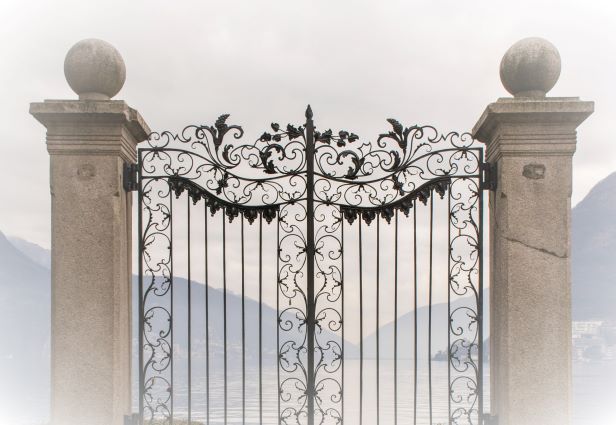
BS”D
Volume 38, No. 47
4 Elul 5784
September 7, 2024
Sponsored by the Katz family on the yahrzeits of Shlomo ben Yaakov Shalom Spalter a”h and Avraham Eber ben Yaakov Shalom Spalter a”h
Our Parashah, which is always read in the month of Elul preceding the Days of Judgment, begins: “Judges and officers you shall appoint at all your gates–which Hashem, your Elokim, gives you–for your tribes; and they shall judge the people with righteous judgment.” R’ Levi Yitzchak of Berditchev z”l (1740-1809; early Chassidic Rebbe) writes that this verse is offering us a recipe for a successful judgment on Rosh Hashanah. Hashem wants to judge us mercifully, but we must allow Him to do so. When we behave with kindness and judge our fellow Jews favorably, we awaken Hashem’s kindness, so that He can judge us the same way. Through such behavior, we open the “gates” of Heavenly kindness, allowing blessing to flow to all of the Jewish People.
This, writes R’ Levi Yitzchak, is the lesson of our verse: You will appoint the judges and officers who determine your fate on Rosh Hashanah by choosing your gates, i.e., choosing which gates you will open. How? By judging all of the people with righteous judgment, i.e., by always seeing the righteousness of others and judging them favorably. (Kedushat Levi)
A related thought from the anonymous 13th century work Sefer Ha’chinuch (Mitzvah 171): Our Sages teach that man is measured by his own measuring stick. However, the author continues, this teaching is misunderstood. It does not mean that Hashem looks at how man behaves and responds accordingly. That is a human trait. Rather, through his own actions, man makes himself into a receptacle to receive reward or punishment.
********
“Tzeddek, Tzeddek you shall pursue . . .” (16:20)
Targum Onkelos interprets: “Truth, truth you shall pursue.”
R’ Dov Yaffe z”l (1928-2017; Mashgiach Ruchani of Yeshivat Knesset Chizkiyahu in Rechasim, Israel) writes: From here we learn how great is a person’s obligation to seek the truth. We read similarly (Mishlei 3:3), “Let kindness and truth not depart from you . . .”
R’ Yaffe continues: In several places in the Talmud, we read that there was a Halachic dispute between Bet Hillel and Bet Shammai, but, then, “Bet Hillel changed their minds and ruled like Bet Shammai.” Since everyone now agrees what the Halachah is in those cases, why mention that Bet Hillel once argued? asks R’ Yaffe. Rambam z”l explains that the purpose is to teach us the trait of truth-seeking. When the scholars of Bet Hillel heard the opposing view and recognized it as more correct, they did not hesitate to change their position.
R’ Yaffe concludes: When a person pursues truth, his life is a different life. Pursing truth is pursuing G-d, for, we are taught, G-d’s seal is truth. (Shma Bni)
********
“A prophet from your midst, from your brethren, like me, Hashem, your Elokim, will establish for you–to him shall you hearken.” (18:15)
We read (Devarim 34:10), “Never again has there arisen in Yisrael a prophet like Moshe.” How, then, can Moshe say that Hashem will give Bnei Yisrael another prophet like him?
R’ Eliyahu Hakohen z”l (1640-1729; Izmir, Turkey; prolific author) explains: “Like me” is not referring to “A prophet,” but rather to “will establish.” In other words, do not expect that your future prophets and leaders will necessary be people from wealthy, upper-class backgrounds. Just as I, Moshe, was a simple shepherd before I was chosen to be Hashem’s prophet, so future leaders may be “like me,” from simple backgrounds. (Chut Shel Chessed)
********
“You shall separate three cities for yourselves B’toch / in the midst of your Land, which Hashem, your Elokim, gives you to possess it.” (19:2)
The Gemara (Makkot 9b) teaches that the cities of refuge for accidental murderers should be equidistant from each other, so that they are centered within the various regions of Eretz Yisrael.
R’ Pinchas Zalman Horowitz z”l (1832-1906; Krakow, Galicia) notes that this Halachah is alluded to in our verse. Specifically, our Parashah has 1,523 words, and the word “B’toch” / “in the midst of” is the 762nd, or middle, word in the Parashah. (Ahavat Torah)
********
“He shall say to them, ‘Shema Yisrael / Hear Israel, you are approaching the battle against your enemies–let your heart not be faint; do not be afraid, do not panic, and do not be broken before them. For Hashem, your Elokim, is the One Who goes with you to fight for you with your enemies, to save you’.” (20:3-4)
The Gemara (Sotah 42a) teaches: What is meant by “Shema Yisrael”? It conveys that Hashem says to Bnei Yisrael, “Even if the only Mitzvah you have kept is the recitation of Shema morning and night, you will not be handed over to your enemies.” [Until here from the Gemara]
A few verses later we read (20:8), “The officers shall continue speaking to the people and shall say, ‘Who is the man who is fearful and fainthearted? Let him go and return to his house, and let him not melt the heart of his fellows, like his heart’.” The Gemara (Sotah 44b) interprets this warning to mean: If one is afraid because of a sin that he committed–even a violation of a Rabbinic law, such as talking in the middle of putting on Tefilin or at certain points during Davening–he does not go out to war. [Until here from the Gemara.] In light of this teaching about the severity of a single sin, asks R’ Bezalel Ashkenazi z”l (1520-1594; Chief Rabbi of Egypt; author of the Talmud commentary, Shitah Mekubetzet), how can the Sages say that a soldier will be protected if he merely recited Shema twice a day? If reciting Shema is the only Mitzvah that he observed, then he neglected putting on Tefilin, a failing that by itself is sufficient to classify a person as a Rasha / wicked person (see Rosh Hashanah 17a)!
R’ Ashkenazi answers: It appears that the Gemara interprets our verse as it does because doing so answers several questions. Firstly, the declaration in our verse is made to many people, as is evident from the plural form: “Atem kereivim” / “You are approaching.” Why, then, why does the verse begin with the singular form: “Shema Yisrael”? The Gemara understands from this that the Torah intends to allude to the Mitzvah of reciting Shema, which also begins with the words “Shema Yisrael.”
Secondly, how can the verse make a blanket statement, “For Hashem, your Elokim, is the One Who goes with you . . .”? Is everyone deserving of Hashem going with him? It must be that there is some merit that can guarantee that result, and that merit, says our verse, is the Mitzvah of reciting Shema, as just explained. (As for the question we asked: Doesn’t the Gemara say that a person who committed even a minor sin should go home? The answer is that the promise of protection for those who recited Shema is directed only to those who were not sent home.)
Why does the Mitzvah of reciting Shema offer special protection? R’ Ashkenazi answers: By reciting Shema, we declare Hashem’s Oneness. Measure-for-measure, He declares us to be His one and only nation, which, in turn, leads Him to elevate us above our enemies. (Derashot Rabbi Betzalel Ashkenazi Ve’talmidav)
********
Teshuvah
Rabbeinu Yonah Gerondi z”l (1210-1263; Spain) lists components of complete Teshuvah / repentance. He writes: The eleventh is to search one’s ways, as it is written (Eichah 3:40), “Let us search and examine our ways and return to Hashem.” There are three reasons why a person should do this, R’ Yonah explains:
First, one should search his ways so that he will remember all the ways in which he has sinned and will confess all of them, for Vidui / confession is one of the fundamentals of Teshuvah.
Second, one should search his ways so that he will know how many sins he has committed and will humble himself.
Third, even though a person has taken upon himself to forsake all sins, he should search his ways because he needs to know what sins he committed so that he can establish safeguards to protect himself from the Yetzer Ha’ra’s ambush. A person is more likely to repeat a sin he has committed before, since the Yetzer Ha’ra has already succeeded once in making that sin light in his eyes. In this sense, a person who sinned and is repenting is comparable to a person who is recovering from an illness, who must be cautious to avoid a relapse. (Sha’arei Teshuvah 1:36)
R’ Gershon Edelstein z”l (1923-2023; Rosh Yeshiva of the Ponovezh Yeshiva) observes: One moment of reflection is not enough. Rather, one must search his ways on a regular basis.
R’ Edelstein continues: Every person must reflect on his deeds. R’ Yonah writes elsewhere that there are ten levels of sin–from transgressing a Rabbinic law to a sin that causes a person to lose his portion in Olam Ha’ba. One who studies R’ Yonah’s words carefully will be mortified, for we do not even realize how much damage we can do to ourselves with a careless thought, a lack of Yir’at Shamayim / reverence for Heaven, neglecting Torah study, and other transgressions whose weight we do not realize. (Peninei Chizuk p.40)


